Amaral Duclona: Bogeyman of Haiti’s Foreign Occupation
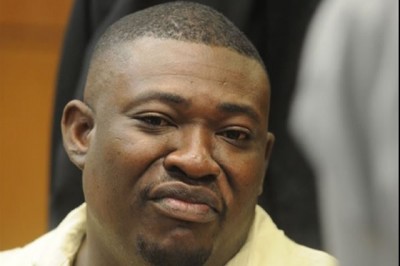
If you did not know the man’s name, and you were unfamiliar with the Western press’ habit of renaming what it fears, you would think that his family name was gang leader or bandit. For about a decade, Amaral Duclona, a charismatic Haitian, born and raised in the Cité Soleil slum of Port-au-Prince, has been the foreign occupation’s bogeyman. France, in particular, has been determined to imprison Duclona for allegedly kidnapping and killing a 51-year-old Haitian-French businessman, Claude Bernard Lauture, in January 2004. Lauture was well ensconced in the Haitian elite and belonged to the group of 184 that was plotting with the United States, France and Canada to depose Haitian President Jean-Bertrand Aristide.
After the initial allegations about murdering Lauture, for a while Duclona was accused of killing every high-value foreigner who wound up dead in Haiti, including French Honorary Consul, Henri Paul Mourral, who was shot near Cité Soleil in May 2005 and Canadian policeman, Mark Bourque, of the United Nations Mission (MINUSTAH), who was shot in Cité Soleil in December 2005. Duclona continues to proclaim his innocence. He says that he is no murderer and merely an anti-occupation militant who has done consciousness raising in his community, assisted his people with voting, getting food and other services, and participated in a citizen’s police that has helped to defend Cité Soleil against the killings, rapes, and assaults by Haitian police and UN forces.
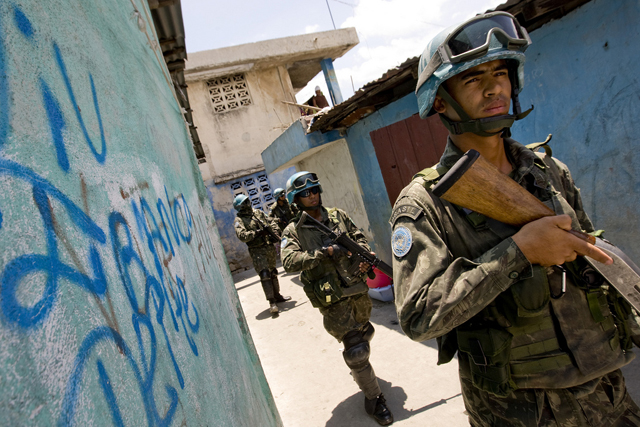
At least one judge in France appears to be listening to Duclona, because his defense secured the retrial on appeal against a May 2014 decision to convict him to 25 years in prison for the alleged murder of Lauture, with no possibility of parole until after 17 years. The new trial is in the Parisian suburb of Créteil on February 8 to 12, 2016.
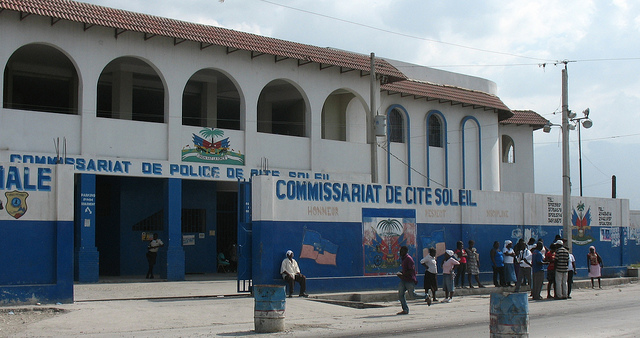
Duclona’s attorney says that a major shortcoming of the previous trial is that it had relied on a weak police investigation in Haiti. According to the published facts of the case, Lauture was kidnapped on January 6, 2004, and after a few hours, he called his brother to say that he would not be released without delivery of a $100,000 ransom. In a radio interview, Lauture’s widow has said that, during this call, Lauture tried to communicate information about his location and was caught doing so. The family was told the next day to go to a morgue; there they found his body riddled with bullets. The prosecution has tried to suggest a political motive for Lauture’s murder that implicates Aristide. The main witnesses at the trial were the widow and the former Ambassador of France to Haiti (2003-2006), Thierry Burkard. Marie-Louise Michelle Lauture told the court that Aristide was unhappy with her husband for joining the group of 184 and had tried to coax him into various government posts that he refused, and she said: “I am convinced that my husband’s kidnapping was remote-controlled by Jean-Bertrand Aristide and executed by Amaral Duclona.” Burkard, for his part, presented to the court the view that the Cité Soleil militias called “chimères… had access to the presidential palace where they took their orders and received money.” The prosecution treated as a key piece of evidence a cell phone, presumably dropped in the struggle during the kidnapping, which had been used to call the chief of Aristide’s security and had been called a total of 21 times by a number attributed to Duclona. The owner of the phone was reportedly killed in a shootout. No witness from Haiti appeared at the trial, not even Lauture’s aunt and cousin, who were supposed to have relayed much of the alleged inducements and threats from Aristide to Mr. and Mrs. Lauture.
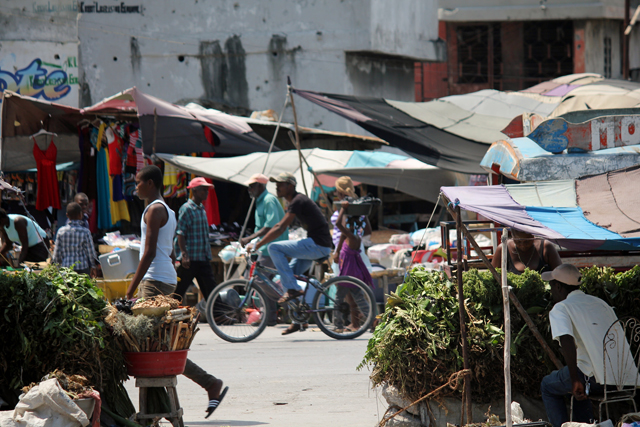
For about two years the accusations against Duclona were ignored, at least in Haiti, although he was formally the most wanted man there. In early February 2006, then 27-year-old Duclona publicly led protests to demand polling stations in Cité Soleil, which then had about 300,000 people. On the occasion, he said:
“People need to realize we’re human beings too, not the animals they think we are…. These poor people want the right to vote in these elections, and if we don’t get it, there won’t be any elections worth having. If you are fighting to take the people out of misery in Haiti, they will always call you a gang leader.”
When the polling stations did not materialize, he accompanied people to vote in the February 7, 2006 elections that returned René Preval to the presidency. Soon thereafter, Duclona disappeared underground, probably because his comrades in Cité Soleil were being killed. Amaral Duclona did not resurface until September 2009 when he was arrested in the Dominican Republic (DR), where he had been living under the alias Berthone Jolicoeur.
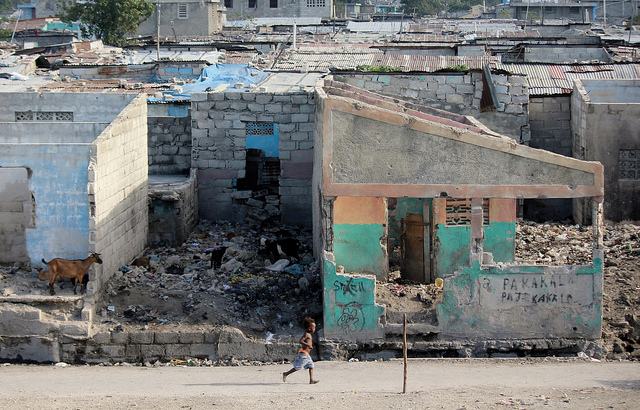
If Duclona kidnapped anyone, the evidence for it is rather circumstantial. On the other hand, there is solid proof that France kidnapped Duclona. His arrest in the DR was quite irregular. For one, the Dominican National Directorate for Drug Control (DNCD) conducted the arrest and jailing. For another, it was prompted by an extradition request from France in which the charges were not those for which Duclona was eventually tried. France charged Duclona with murdering a French citizen and diplomat, Henri Paul Mourral, so that the extradition would go smoothly, and indeed, Duclona was extradited to France within four months. In the end, however, France tried Duclona, not for Mourral’s murder but for that of Claude Bernard Lauture, a Haitian-French citizen, although France should have had no jurisdiction in the trial of a Haitian national for a crime committed against another Haitian national on Haitian soil. In other words, real justice now would require a dismissal of the Duclona case and its retrial in Haiti.
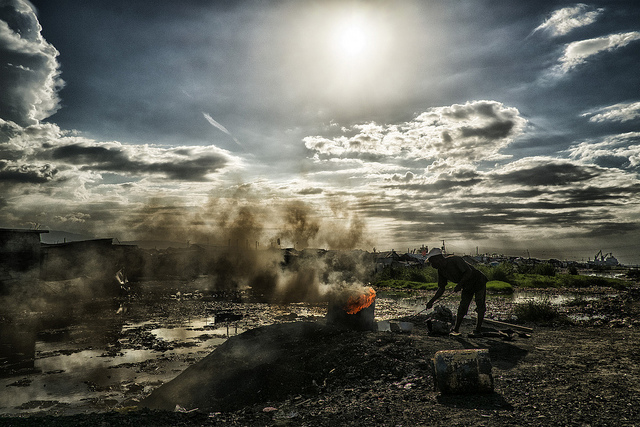
Given the unjust basis of the case, it is unlikely that a retrial will clear Duclona. At best, he might get a lighter sentence than the scandalous one from the 2014 trial that made a travesty of the French justice system. This old colonial power imagines that its assaults on the sovereignty of countries like Haiti and the Ivory Coast have no cost. But just as in the late 16th century on the heels of its supposed enlightenment, France finds itself no longer free after it embraced racism as policy. This time around, it is under a state of emergency.

Mural caption: “We are sown, we sprout, we make roots to give life.”
Dady Chery is the author of We Have Dared to Be Free.
Notes:
Photos one, three, and seven from UN Photo; two from Haitian Photos archive; four by James Emery; five, six, and eight by Andre Mellagi.

